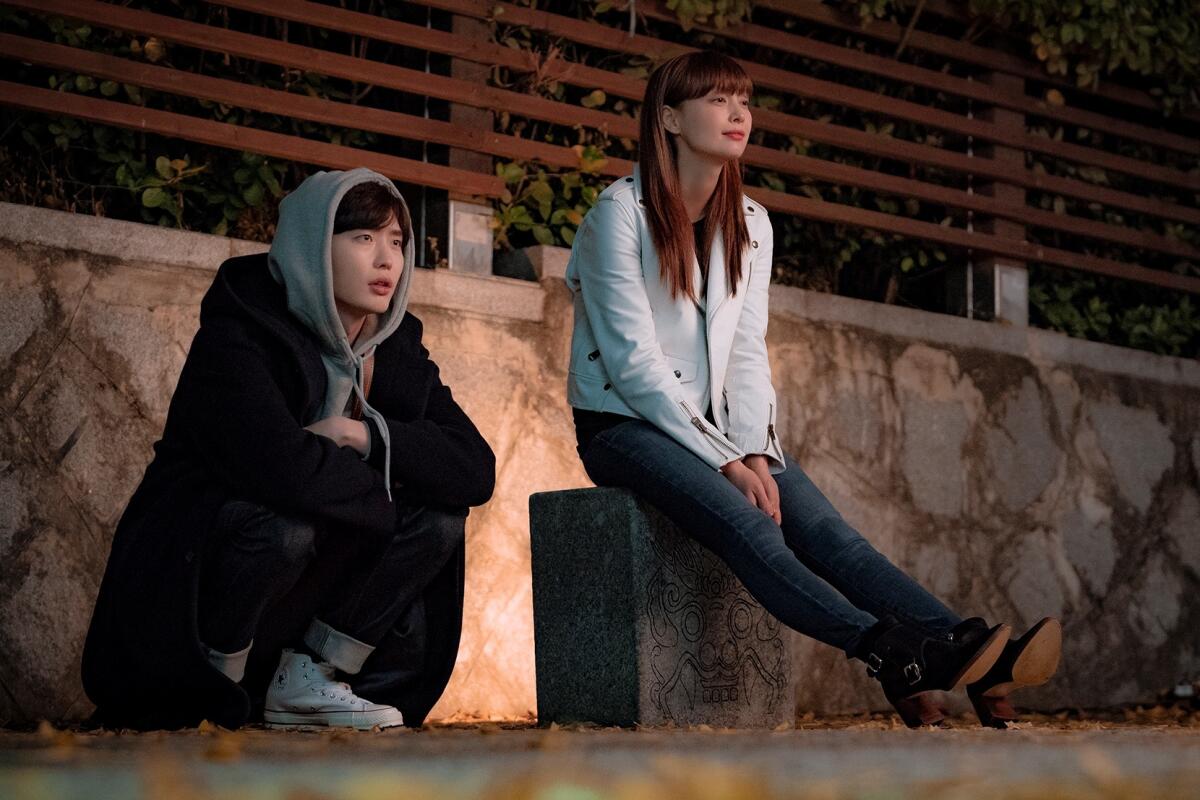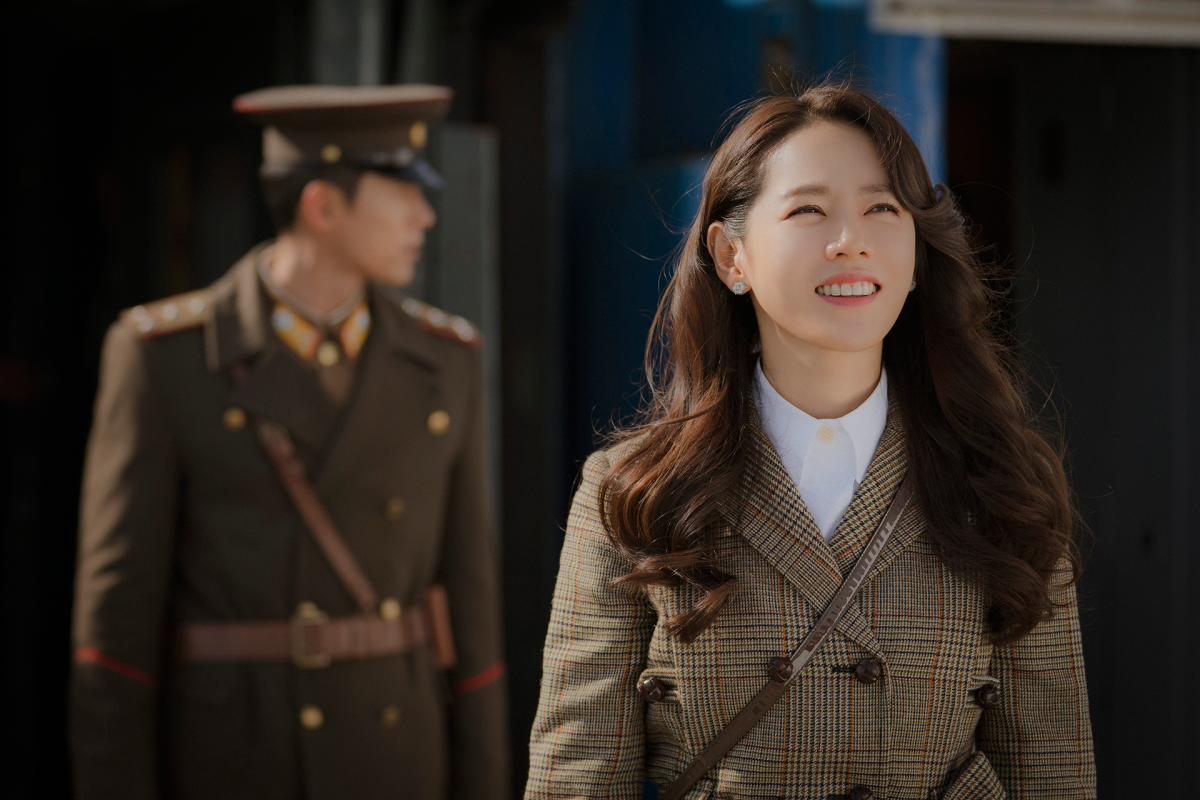Why the swoon-worthy romances of Korean TV are winning over American viewers

This Valentine’s Day, grab a box of tissues and be prepared to shed a tear — or several. Because the nuanced, slow-paced storylines of Korean dramas have emerged as a poignant alternative to Hollywood romantic comedies.
Across genres — action, crime, sci-fi — Korean dramas regularly integrate romantic elements. And bringing viewers to tears is one of their foremost measures of success.
“Korean creators have become masters at moving people’s hearts without big and flashy spectacles,” said Young-hun Choi, director of K-drama “One the Woman.” “The iron rule of Korean dramas is that ... you need to be able to empathize with the characters.”
This is in line with Korean cultural norms, according to Choi: “Traditionally, Koreans often move according to their heart rather than with their heads, based on interests and pros and cons. Among those emotions, tears are especially important. One of the things that successful Korean dramas have in common is that, in any genre of drama, there are always scenes that move viewers and make them cry.”
At the heart of this emotional response is what Suk-Young Kim, a professor at the School of Theater, Film and Television at UCLA who studies Korean popular culture, calls “mildang”: a Korean word for the prevailing rhythms of a romantic encounter, and one that captures why audiences can’t seem to stop watching a romantic K-drama once they’ve begun.
“It’s like pulling and being pulled by your potential romantic interest in a very tantalizing and cliffhanger way,” Kim said. “It’s like emotional tug-of-war, in a much more subtle and cute way. I think that expression is also pointing to this fuzzy intermediary zone between erotic romance and friendship.”
K-dramas’ slow-forming friendships, which evolve into romance over time, often register as more wholesome than the rapid-fire rom-com, often marked not by delicate moments but with grand gestures.
For many drama fans, the most refreshing part of K-dramas’ approach to romance is the way the love story unfolds without forthright sexual tension. Audiences connect with the main characters on an emotional level, an investment that deepens as the payoff is withheld. In the popular drama “Romance Is a Bonus Book” (Netflix), for example, the romance between two lifelong friends who reconnect after one’s divorce is handled deliberately, treading as lightly as old friends might.
“I think the Korean drama genre as a whole has cultivated a kind of expert technicality to present that,” Kim said. “Viewers are completely drawn into the emotional dynamics between the two potential lovers in the making, and [it makes] you completely follow that emotional journey with those characters.”
The premise of recent hit “Hometown Cha-cha-cha” (Netflix) may be familiar to fans of Hallmark holiday movies — big-city dentist falls for small-town orphan — but the romance’s gradual development is distinct. It’s a reflection of real differences between Korean and American dating culture, according to Kelsey Jeong, who discusses love and dating in Korea from a Korean woman’s perspective on the YouTube channel “Kelsey the Korean.”

“On the bright side, the cute and the wholesome part is also true,” Jeong said. “I do think that it’s slower-paced in Korea. And it’s more about emotional connection, which can be good or bad.”
Whether it leans toward realism, as in “Hometown Cha-cha-cha,” or pure fiction, as in “Crash Landing on You” — in which a paragliding woman from South Korea accidentally ends up in North Korea and is rescued by a handsome soldier — K-drama romances all lead up to the genre’s most crucial element: the kiss.
“In Korea, kissing scenes do not appear as often as in the United States. That’s why the kiss scene is so important in Korea,” Choi said. “I think a kiss is often symbolized as the fruit of love in Korea, so the push and pull and the adventurous journey of the couple running for a kiss is a typical Korean romance. Like the first kiss or the first night, for Koreans love is something pure and beautiful fantasy.”
But that doesn’t mean Americans should be fooled into thinking that dating in Korea mirrors the fantasy depicted on TV.
“There are definitely toxic Korean men and there’s definitely toxic masculinity in Korea. But that’s not shown in the drama,” Jeong said. “So for instance, the cute, wholesome part of Korean dramas, when the guy doesn’t have sex with you until he’s totally in love with you, that’s a flip side of the misogyny we have here, because the guys think they have to protect you sexually.”
Throughout the pandemic, the popularity of Korean dramas has skyrocketed. According to Netflix, global viewing hours for its Korean shows grew six-fold compared to 2019. And there may be reason for that too. In Korean dramas, love conquers all and the characters always take the moral high road — reassuring at a moment when the real world can throw those precepts into doubt.
“If you’re just talking about the Korean context, it almost became some kind of psychological treatment for people who feel so unsettled in this fast-changing pace of life,” Kim said. “So having predictable elements to give people comfort was really important in that aspect. And I think if we expand that to today, elsewhere, outside of Korea, we’re living in a very shaky world.”
If the content of K-drama romances hasn’t won you over yet, perhaps their addictive structure will — all you need to do is start one.
“American dramas overall have a more autonomous field for each episode. There’s seriality, with continuing characters [and] continuing narrative line, but you have some kind of closure at the end. You somehow feel like your car has been brought back to the parking lot,” Kim said. “In Korean dramas you feel like you’re running on Autobahn at like 100 miles per hour, and the episode stops right there. So you’re going crazy as a viewer, because you have to see the next one, and the next one.”
Need more K-drama romances to watch? Try these:
If you like “Romance Is a Bonus Book,” you might enjoy “Something in the Rain” (Netflix). The love story focuses on an older woman who falls in love with her best friend’s younger brother.
If you’re a fan of “Crash Landing on You,” you’ll want to check out “Descendants of the Sun” (Netflix), in which a soldier and a surgeon find love in a war-torn country.
And fans of “Hometown Cha-cha-cha” should give “When the Camellia Blooms” (Netflix) a watch. It’s another slow-paced romance that takes place in the countryside.
More to Read
The complete guide to home viewing
Get Screen Gab for everything about the TV shows and streaming movies everyone’s talking about.
You may occasionally receive promotional content from the Los Angeles Times.







